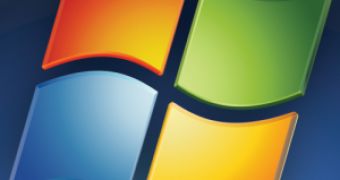Windows is one product that is not lacking in Nemesis candidates. From Apple's Mac OS X to the open source Linux, to RIA cloud-based operating systems, potential Microsoft Windows killers are advertised in a variety of scenarios incongruent with reality. Microsoft's own non-Windows platforms Singularity and Midori are the latest additions to the list of items designed to supersede Windows as the Redmond company's current flagship product becomes antiquated, obsolete and inferior. However, Microsoft Technical Fellow Mark Russinovich indicated that a Windows killer, especially Midori, is nothing but a pipe dream.
An evolution of the Singularity project from Microsoft Research, Midori is a componentized platform written from scratch in managed code, and an incubation project under the leadership of Eric Rudder, senior vice president, Technical Strategy. The leaked information on Midori, combined with the shock of Microsoft reinventing the OS, catalyzed a wave of speculation about the complete exclusion of Windows from the future of the Redmond giant's platforms. Russinovich indeed confirmed that Midori was cooking under Rudder.
"The Midori incubation, [developed] under Eric Rudder, and that's basically taking the concepts of Singularity, which is a totally managed .NET collected OS, and investigating ways to make the [operating system] really scalable across different nodes and asynchronous responsive and they've got this asynchronous programming model they're building on top of that," Russinovich revealed.
However, the Microsoft technical fellow is not as fast when it comes to jumping the gun on the future of Windows. In fact, Russinovich indicated that even with projects like Singularity and Midori, the evolution of Microsoft's operating systems will lead to... Windows.
"As far as the future of Windows, and Windows being something not based on what Windows is today... I'm working in Windows, I'm not working in Midori, I'm not working in some other incubation. So I think that kind of answers the question right there about what I think will happen to Windows, and that is that the future will be Windows of some kind," he forecasted.
The reason is, of course, related to the work that has been already poured into Windows, an effort that is by no means limited to Microsoft. In fact, the largest ecosystem of software and hardware solutions in the world today is built around Windows. Microsoft is simply not going to throw such a legacy away. "It just doesn't make sense to me. What amazes me is that people just say let's throw everything away and start over, because there's so much that's been invested in things that are in Windows," Russinovich added.
In the video fragment embedded at the bottom of this article, starting with 27:10, Russinovich discusses Midori and the future of Windows. Microsoft is hammering away at the first Beta of Windows 7, the successor of Windows Vista, and the next major iteration of the Windows client, and plans are already in place for the delivery of Windows 8, which will succeed Windows 7.
"If you look at how much work has been put into the kernel, the Windows kernel is, in my opinion and the numbers back this up, the most scalable kernel, the one that supports the most drivers of any kernel, hardware devices than any kernel on the planet, if you just focus on the PC hardware and server-class hardware," Russinovich pointed out. "And that's just a huge investment, a huge asset that we've got and I don't think that it makes sense to just toss that. It does a great job, and it's not perfect, and there's no kernel that's perfect, or OS that's perfect, but that's probably million of man-years of work that's gone into tuning it, and designing it, and implementing it."
Interview with Mark Russinovich: the future of Sysinternals, Security, Windows

 14 DAY TRIAL //
14 DAY TRIAL //